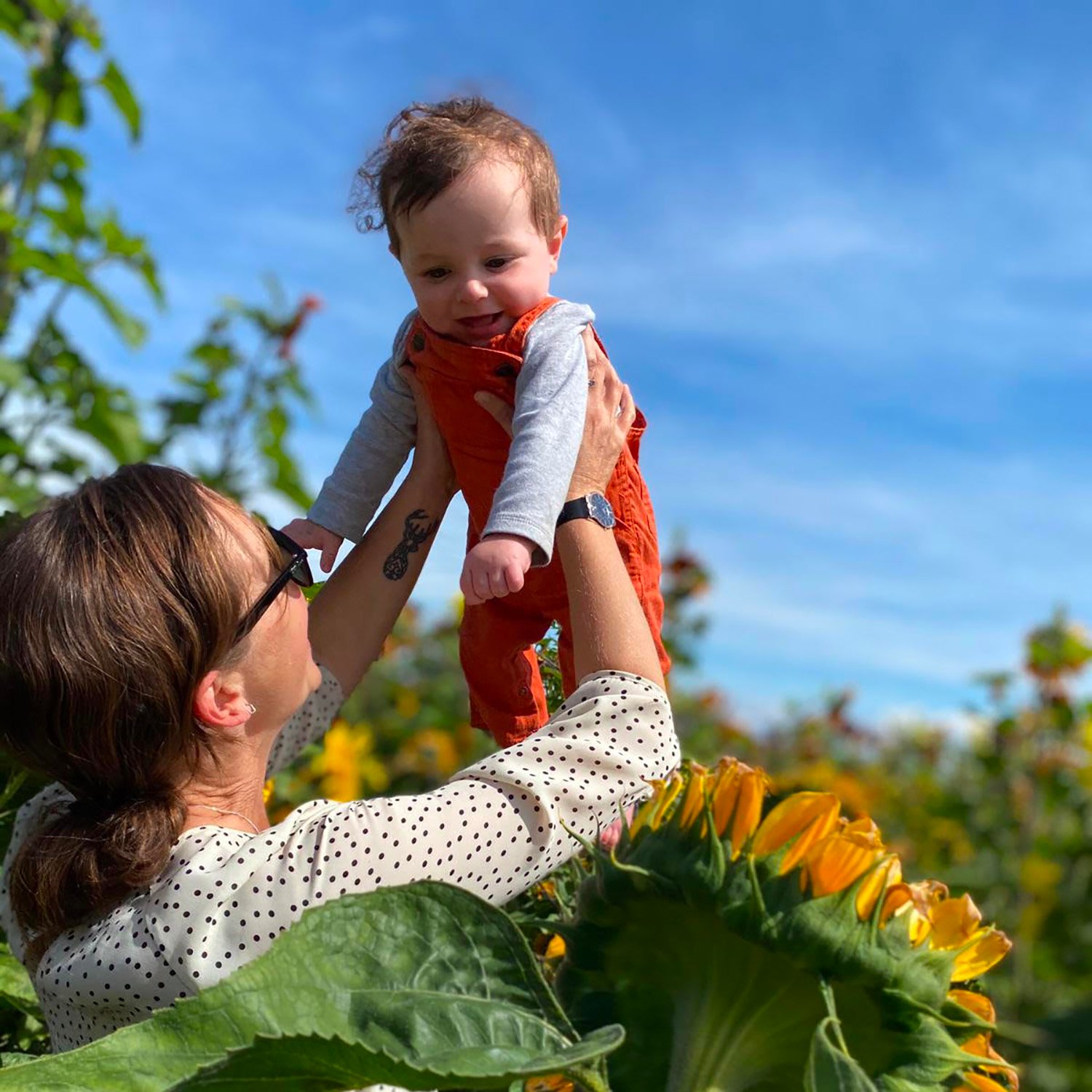In early March of 2020, I discovered I was pregnant for the first time. I told my sister the happy news a year ago this week, in a bright neighbourhood café with warm drinks, whisper-shrieking with disbelief, trying not to disturb the half-dozen people reading, relaxing, and working on laptops around us.
That would be the last normal social moment I’d have for my entire pregnancy, and well beyond. About a week later, the whole world shut down to stop the spread of COVID-19.
It’s eerie thinking back to that afternoon and all its tiny details I took for granted: calling someone for a spontaneous coffee. Hugging my sister. A café of people silently living their lives alongside each other. Standing in line to order and giving exactly zero thought to anyone’s proximity to me, or the risk to my fetus. Leaving the cafe and assuming my next hangout with my sister was a handful of days away, like always.
My son arrived in November 2020 in Toronto, at the height of the second wave of COVID-19. He was born onto a quiet planet that only his dad and I inhabit; he has yet to meet a single other person. There have been no friends hanging out on the couch while I clumsily attempt to master breastfeeding, no visitors, no parents moving in to help out, no mom groups or meetups, and no real postpartum support.
In moments, this has been crushing, frustrating, lonely, and hard. The sleep deprivation is physically painful some days. Four months in, I’m still struggling to feed myself and shower. I’ve cried in the shower over the excruciating pain of blocked milk ducts, and ended up on antibiotics for mastitis.
But this quiet winter cocoon that my son and I have existed in since the day we brought him home from the hospital has also become an unexpected blessing. It’s so quiet that I’m able to listen to—and really hear—my instincts in a way the big shiny parenting industry doesn’t seem to trust women to do, and in a way that couldn’t happen if my house was constantly filled with in-laws and siblings and neighbours all telling me what to do and how to do it. The silence is forcing me to parent my son from a place of surprisingly deep intuition.
For a while, the mastitis antibiotics I was on required me to wake up at regular intervals brutally staggered between the other regular intervals I was already waking up at to feed my baby. And one night, sitting in our rocking chair at 3 a.m., the angry red infection in my chest screaming at the slightest brush of a t-shirt, I stared tearfully at the hundreds of moonlit rooftops stretched across the city, and found it comforting: I thought of all the other people who’d stepped into parenthood in the midst of a terrifying and relentless pandemic, and who were also up at 3 a.m., rocking their babies and missing their sisters, FaceTiming their parents and generally trying to cobble together some semblance of support and a normal life from screens and voicemails, patience and perseverance.
As we mark the one-year anniversary of the week everything changed, I canvassed the parents of pandemic babies across Canada, who have lived their entire lives largely in lockdown. Here are some reflections about the hardest parts, and surprising upsides, of having a baby during COVID-19.
Photo: Courtesy of Cheryl H.
NAME: Cheryl H.
LOCATION: Victoria, BC
PARENT TO: Eli, born December 2019
BORN: December 2019
“I think the hardest part was not having the support from friends and family. I remember when COVID restrictions began I was just starting to want to get out and see people, and then it all stopped. I just wanted someone to hold my baby. I wanted to be able to run to the store or have a shower and have someone hold my baby for me. In June my in-laws moved to Victoria and this helped a lot, as they could offer support and respite. Unfortunately, my family is in Ontario, and aside from my mom (who came out in February 2020 for a quick visit) my family hasn’t met Eli yet. This saddens me—I want my family to know my son, and my son to know him.”
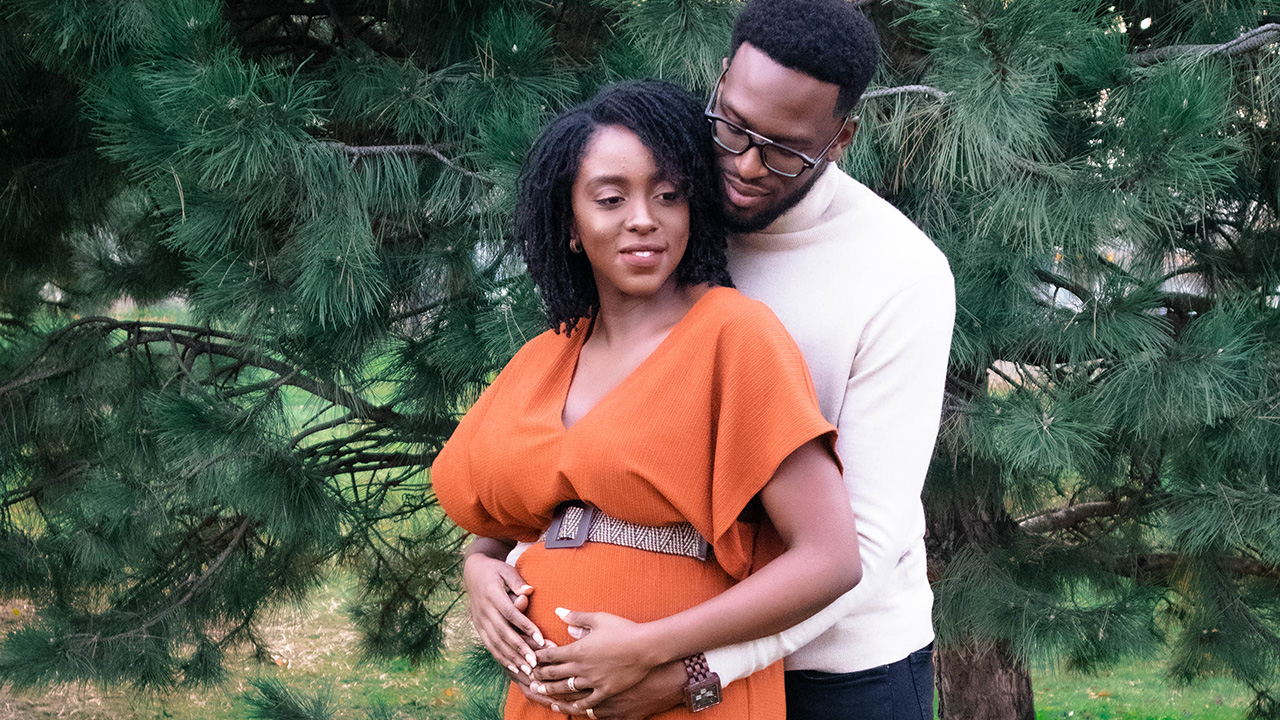
Photo: Courtesy of Farahdja C.
NAME: Farahdja C.
LOCATION: Montreal
PARENT TO: Zayne
BORN: March 2021
“The surprising upside of having a baby during COVID is that I got to go through my pregnancy in peace. No unsolicited advice, no one touching my belly without consent, and I had space to isolate myself and connect with this new role of being a mom. There is a lot involved in a pregnancy, especially mentally. That was a surprise for me—a lot of memories came up. I’m glad that I was working from home, and working for myself, which allowed me to take off whenever I could, and it happened a lot more than expected. I also had the opportunity to heal my mother-daughter relationship with my mother, to allow me to get rid of my fears of being a mom. So, I’m very grateful that I got to go through the whole experience without worrying about my productivity elsewhere.”
NAME: Ashley O.
LOCATION: Whitehorse, YT
PARENT TO: Thomas and Samuel
BORN: October 2019 and January 2021
“When I stop and think about what the past year might have been like if we hadn’t had our children, I think it would have been a much more hopeless experience. Having children, during a pandemic or not, re-focuses most if not all your energy and attention into the role of parenthood and caring for your children, and thankfully, I have found it to be very rewarding and fulfilling. In retrospect, becoming a mother during the pandemic has probably helped me get through it, by focusing on what I am responsible and thankful for—my children—and not focusing on what is missing.”
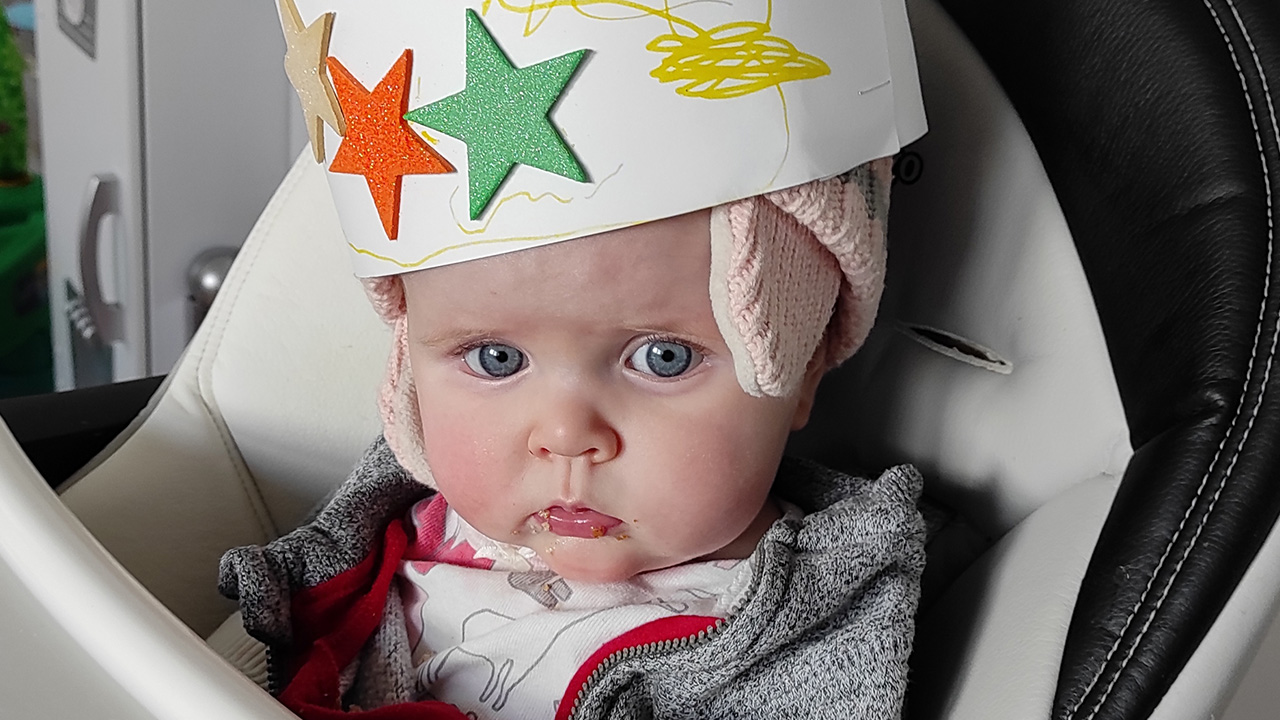
Photo: Courtesy of Erin S-R.
NAME: Erin S-R and Mike R.
LOCATION: Dartmouth, NS
PARENTS TO: Piper
BORN: July 2020
Erin: “Something I’ve encountered a handful of times during COVID is well-intentioned people in public spaces who take off their masks to talk to the baby. She was born in July 2020; she’s a COVID baby and is very used to masks …you can leave it on. Also, the strangers who touched your baby pre-pandemic will continue to touch your baby during a pandemic.”
Mike: “We had Piper’s older brother signed up for all sorts of classes and programs to try and make sure he was getting the best experiences we could give him. Kindermusik, circus school, creative movement classes—you name it. We had a great time, but this time they haven’t been available, at least not in-person. As a result, we’ve been scanning YouTube and coming up with fun home-based alternatives. Jolly Jumper dance parties, epic games of peek-a-boo, and the ever popular ‘smash a banana into your face’ game have all proven to be great alternatives that help Piper–and her parents–grow and develop together.”
NAME: Mair C.
LOCATION: Vancouver
PARENT TO: Brye
BORN: June 2020
“One surprising upside is that me and the babe got into a good rhythm early on. He fed very well right from the start and I believe that not having visitors supported this. My midwives told me that they have seen the best feeding outcomes during COVID, likely because people were undisturbed in the early days. If it were not for COVID, I probably would have had lots of people over to meet our kid, and this would have been more about others’ needs and less about my need for people to meet him early on. Reflecting on this has given me confidence to be clearer with my boundaries moving forward.”
“The lack of structure to our time right now—it’s always Groundhog Day—also gives me the freedom to follow my kiddo’s hunger and sleep cues rather than watching the clock. Each day is mostly the same, but slightly different. If COVID wasn’t happening, I’d be out and about in the world with more distractions and less attunement, and I wouldn’t have learned him as well.”
“I also enjoyed being visibly pregnant during COVID isolation. As a non-binary and androgynous-presenting person, being isolated while pregnant meant less misgendering, less unwanted touching and less overall discomfort. I enjoyed hiding out from the cisnormative world for the third trimester.”
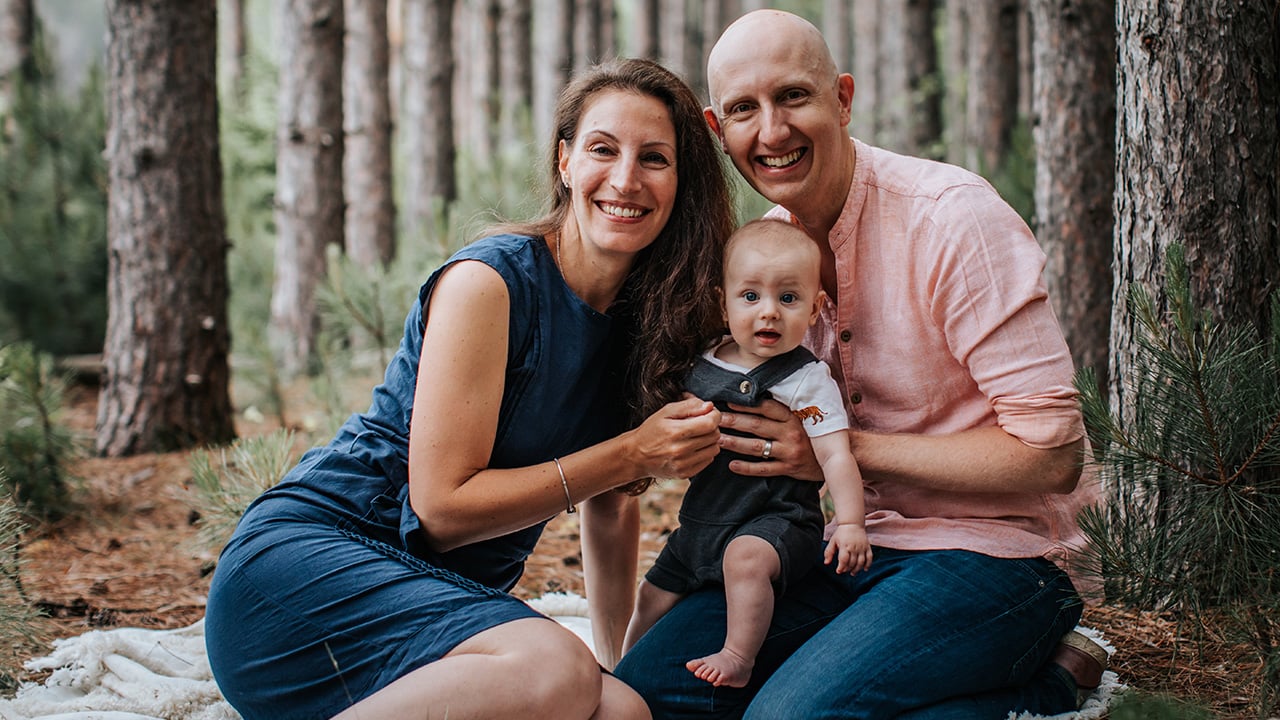
Photo: Of Wild Dawn Photography, courtesy of Peter Z.
NAME: Jessica C. and Peter Z.
LOCATION: Ottawa
PARENTS TO: Thomas
BORN: January 2020
Peter: “Our life became wonderfully simple. It was just us, our three-person family unit and lots of time to enjoy being new parents. There were no outside world pressures or commitments to have to juggle. We developed a routine of playing, sleeping, eating and going for long walks—a Groundhog Day phenomenon, of sorts.”
Jessica: “Our Groundhog Day with Thomas was beautifully simple. Having him as our centre of focus was the best distraction during a very scary and uncertain time. Our whole lives shifted when we became parents, as I imagine all parents experience. But becoming parents during COVID provided a sort of emotional protective shield around the three of us. My whole purpose became to keep this little human happy and healthy, which left little space for me to worry over daily case numbers or the progress of a vaccine. If he did something new, like giggle, that was the best day ever, no matter what was going on outside our little bubble. That giggle was everything, and nothing else mattered.”
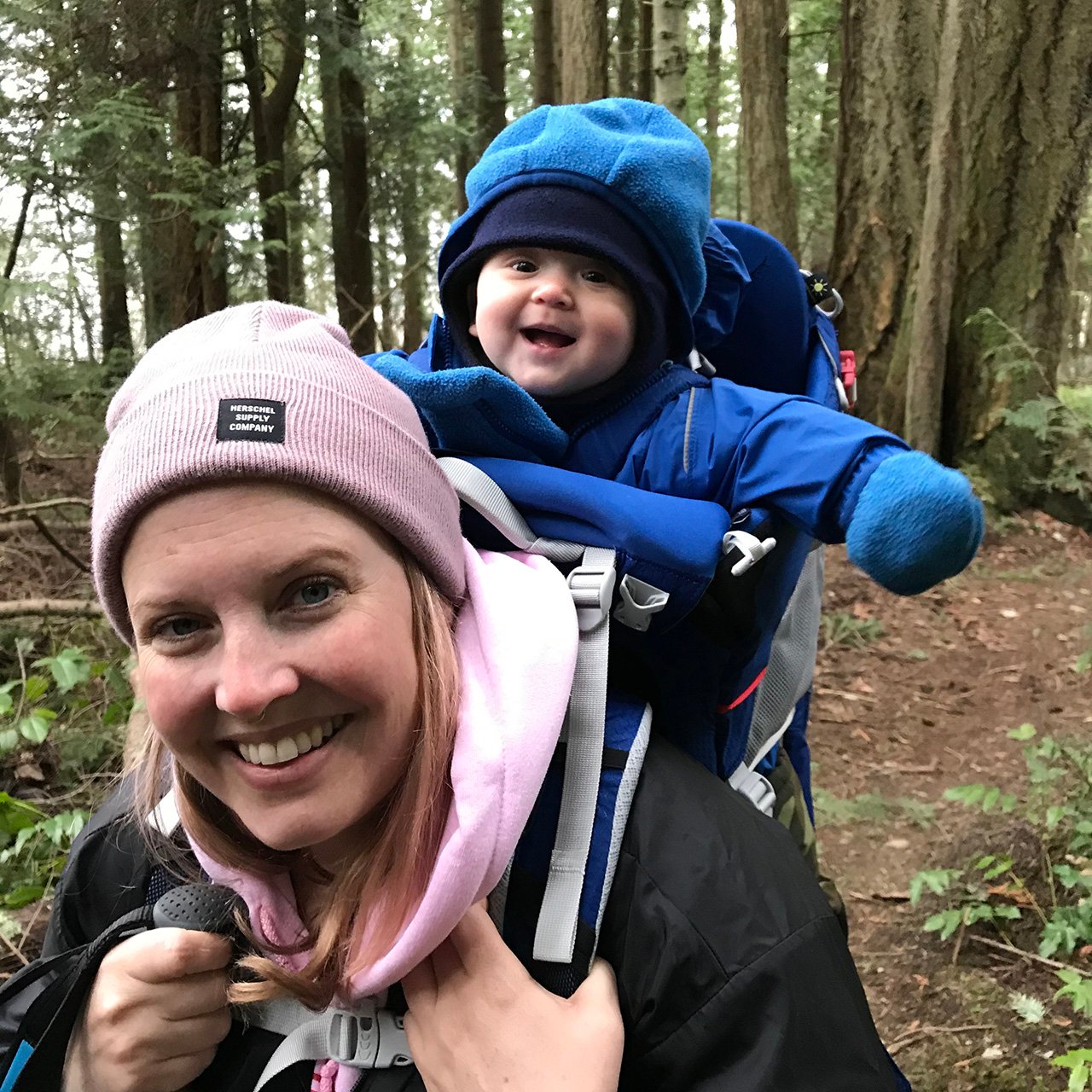
Photo: Courtesy of Taiva T.
NAME: Taiva T.
LOCATION: Guelph, Ont.
PARENT TO: Finley
BORN: July 2020
“I am a queer, single, first-time mom. Queer communities value mutual aid, and chosen family. The pandemic created barriers to nurturing our vibrant and expansive community—Finn has yet to meet the many people who will play an important role in her life. I also suffered from postpartum depression, and the isolation required by pandemic precautions meant I couldn’t access the in-person connections that would have greatly helped me heal. Having a baby during the pandemic has highlighted the importance of mutual aid: We need community to survive, and that means reaching beyond the normative bubbles of the nuclear family to create networks of care.”

Photo: Courtesy of Margot H.
NAME: Margot H.
LOCATION: St. John’s, NL
PARENT TO: Charlie
BORN: April 2020
“I could say that 30 hours of labour and delivery with a mask on or spending two days in the hospital alone with my new baby was the hardest part, but it wasn’t. That was all an inconvenience, but the hardest part has been knowing that we are on our own, and will be on our own, until we can get COVID under control. I remember getting ready for my appointment to be induced at 41 weeks as the whole country was in lockdown, and seeing friends on social media in other parts of Canada having parties, ignoring public health orders, and downplaying the virus, while I knew I had to walk into a hospital alone, masked and scared, to start the process of giving birth. There have been so many amazing people taking care of Canadians, and then those who can’t see past their own self-interest. Watching that has been tough.”
“Parenting a newborn during COVID has reshaped our expectations. It makes a sneaky glass of champagne on an outdoor patio in between naps feel like a vacation in the South of France. Quality over quantity, if we can make a brunch out as a family happen, we make sure we make it special. Our once very full life of work and play has been uprooted, but the small moments of normalcy feel amazing.”
NAME: Essya N. and Chris M.
LOCATION: Vancouver
PARENTS TO: Koda
BORN: September 2020
Chris: “It’s been really hard as a first-time father not to be involved in appointments or regular meetings with our midwife leading up to the birth. I couldn’t meet our new family doctor or be there for immunizations, all because only one parent can attend.”
Essya: “Yes, it was upsetting to not have my partner by my side during our prenatal appointments, in particular. Not only do these benefit fetal-parent bonding, especially with every heartrate reading, but the information received is not always positive, or easy to repeat or share with him later. It effectively sidelines one parent, and I, personally, experienced this as added stress, or even resentment. We were one household—the same “bubble”—interacting with care providers. I have also felt conflicted around screen time and how early we introduced Koda to devices. I worry about this every single Sunday when we video-call his grandparents, who otherwise would never know him, and similarly, whenever we join postpartum ‘mommy-and-me’ virtual programming. It’s incompatible with how I imagined my mat leave.”
